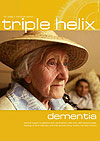What can Christians contribute that is different from any other conscientious teacher? Morgan proposes that scientific medicine has dehumanised us because behaviour is seen as mere product of biochemical reactions. He reminds us that Christians believe human beings are made in God's image and have infinite value. We must, therefore, counteract secular humanism and restore human value to medical education and practice. This includes teaching the importance of spirituality.
Suggestions are given on how to raise Christian values, particularly by highlighting ethical issues in everyday practice. A patient-centred approach to consultation and a learner-centred approach to education are recommended. Using the Hippocratic Oath to stimulate discussion and allow overt expression of Christian values is interesting, as is the use of Jesus' methods as a teaching template. Teaching should include narrative.
These suggestions are thought-provoking. However, patient-centredness, learner-centredness and narrative are established concepts in medical education. Even spirituality is recognised as an important part of clinical care. This book encourages and challenges me to bring my Christian faith into my teaching, but leaves me dissatisfied because it does not fully explore the challenges of applying Christian insights to a largely secular environment.
































